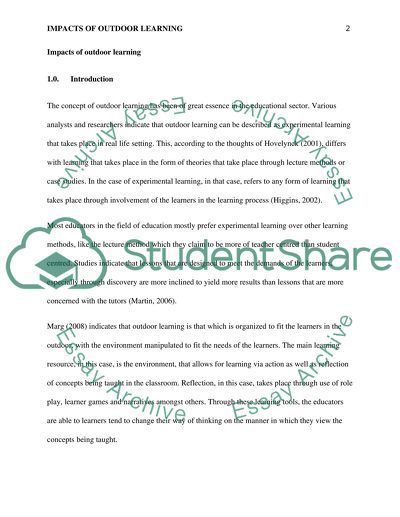Cite this document
(“Impacts of Outdoor Learning Essay Example | Topics and Well Written Essays - 2500 words”, n.d.)
Retrieved from https://studentshare.org/education/1446141-using-an-established-literature-base-critically
Retrieved from https://studentshare.org/education/1446141-using-an-established-literature-base-critically
(Impacts of Outdoor Learning Essay Example | Topics and Well Written Essays - 2500 Words)
https://studentshare.org/education/1446141-using-an-established-literature-base-critically.
https://studentshare.org/education/1446141-using-an-established-literature-base-critically.
“Impacts of Outdoor Learning Essay Example | Topics and Well Written Essays - 2500 Words”, n.d. https://studentshare.org/education/1446141-using-an-established-literature-base-critically.


